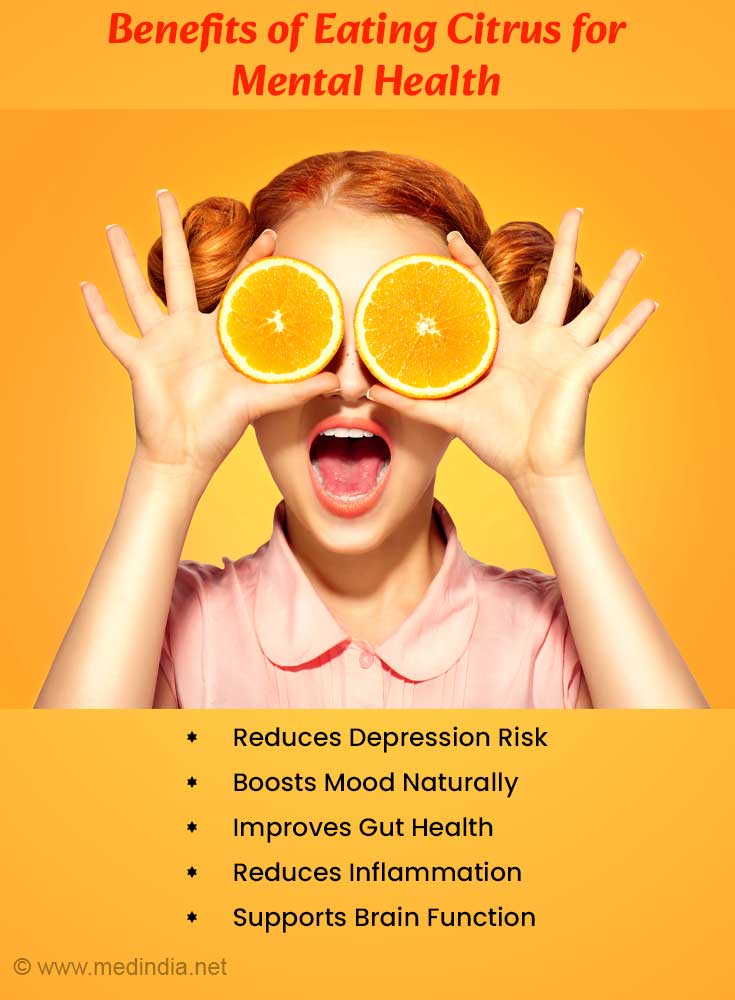Eating citrus fruits like oranges can reduce depression risk by 20% by promoting gut bacteria that enhance serotonin and dopamine levels, improving mental health.
- Eating citrus supports gut bacteria linked to serotonin and dopamine production
- Regular citrus intake is associated with a 20% lower risk of depression
- Gut health plays a crucial role in mental well-being and mood regulation
F. prausnitzii potentially modulates the association between citrus intake and depression
Go to source).
Citrus and Mental Health
Citrus fruits contain various nutrients, including vitamin C, flavonoids, and fiber, which contribute to overall health. However, the effect on mental health appears to go beyond general nutrition. The key factor seems to be the ability of citrus to support beneficial gut bacteria, which influence neurotransmitter production.Research has shown that people who consume citrus regularly tend to have higher levels of a specific gut bacterium that is linked to better mood regulation. This bacterium, known for its anti-inflammatory properties, also appears to play a role in producing serotonin and dopamine—two neurotransmitters essential for mood balance.
Role of Gut Bacteria
The gut is often referred to as the "second brain" because of its connection to mental well-being. The bacteria living in the digestive system influence various biological processes, including the production of neurotransmitters. Higher levels of beneficial gut bacteria have been associated with a reduced risk of mental health disorders, including depression.In this case, the consumption of citrus appears to encourage the growth of a specific gut bacterium that supports a healthy balance of serotonin and dopamine. These neurotransmitters are not only responsible for digestion but also play a key role in regulating emotions and mood stability.

Comparison to Other Fruits and Antidepressants
Interestingly, the effect of citrus on mental health seems to be unique. While fruits and vegetables are generally associated with good health, not all have the same impact on depression risk. Other fruits, such as apples and bananas, did not show the same connection to lower depression rates.Although citrus consumption appears to reduce depression risk by about 20 percent, it does not replace traditional treatments such as antidepressants. Instead, it may serve as a preventive measure that supports mental well-being before symptoms develop. Combining dietary habits with other approaches to mental health care could be a beneficial strategy for individuals looking to improve their overall well-being.
How Citrus May Help Prevent Depression
The process by which citrus supports mental health is complex, but some key mechanisms have been identified:- Encouraging beneficial gut bacteria – Citrus promotes the growth of specific bacteria linked to positive mood regulation.
- Influencing neurotransmitter production – The gut bacteria supported by citrus intake contribute to serotonin and dopamine levels, which help regulate mood.
- Reducing inflammation – Chronic inflammation has been linked to depression, and citrus contains compounds that may help reduce inflammation in the gut and body.
While more research is needed to fully understand the connection between citrus and mental health, current evidence suggests that incorporating citrus into a daily diet may help lower the risk of depression. This finding highlights the importance of gut health in mental well-being and supports the idea that dietary choices can influence mood. Adding an orange or other citrus fruits to daily meals may be a simple yet effective step toward better mental health.
Reference:
- F. prausnitzii potentially modulates the association between citrus intake and depression - (https://microbiomejournal.biomedcentral.com/articles/10.1186/s40168-024-01961-3)
Source-Medindia
















